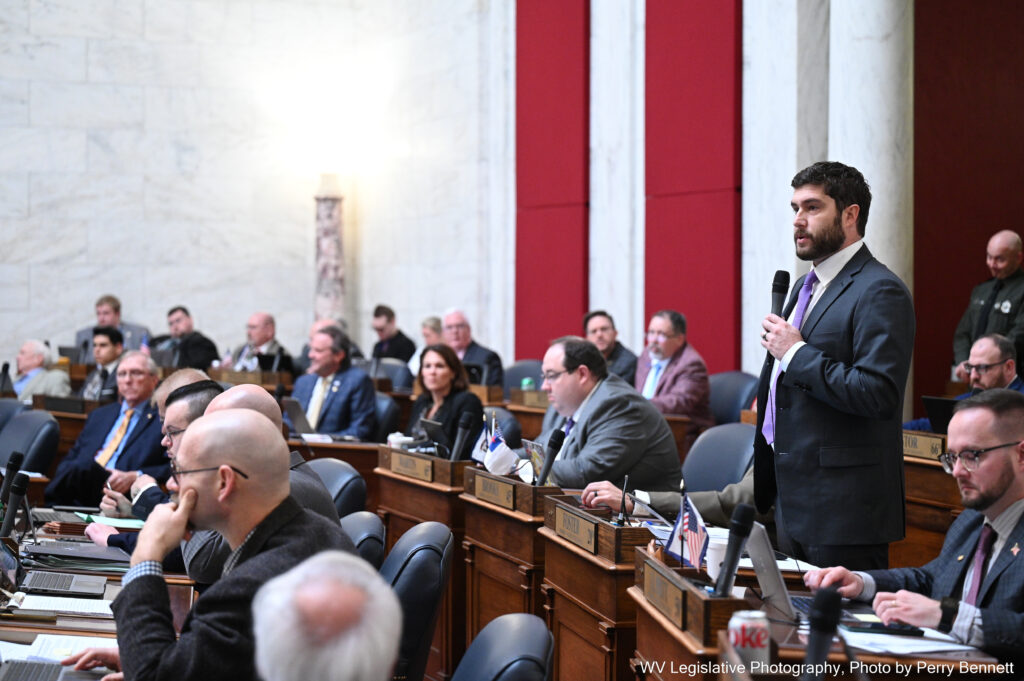On Friday the House of Delegates gaveled in at 11 a.m. and passed two bills with minimal discussion. Those were Senate Bill 269, which decriminalized drug testing strips, and House Bill 4205, which would change the process of election litigation.
Delegates also debated House Bill 4759 and its various amendments for nearly an hour. The bill aims to quell the employment of people who are in the country illegally by checking status with the federal E-Verify system.
Del. Geoff Foster, R-Putnam, presented two amendments to the bill he said would make the bill more small-business friendly.
“But what my bill does is my amendment strike and insert amendment is trying to go after who’s the wrongdoers,” Foster said. “That’s the goal of the amendment. Rather than making every business, every business with 15 or more employees goes through a cumbersome government process.”
The first amendment, a strike and insert, failed on a floor vote.
The second amendment introduced by Foster requires employers to keep I-9s on file.
“This amendment has much less to do with the bills as like my policy decision of what should be done and more to do with can this bill operate,” Foster said. “Because right now as the bill is written, section four is not included in the bill. But the employer is defined as 15 or more employees. So section four is your records requirement for your I-9.”
The House approved a second amendment.
The bill itself was the topic of discussion as the debate wore on. Some lawmakers thought the bill added cumbersome paperwork to small business owners across the state.
“We want to make sure we have legal people working in the state but also have concerns as a small business owner myself,” Del. Jim Butler, R-Mason said. “What additional burdens were added to small employers?”
Other lawmakers, like Del. Pat McGeehan, R-Hancock, cited an “immigration crisis” as the reasoning behind the bill and blamed President Joe Biden’s administration.
“We have created a country that makes it very, very easy that once you get across the border, you can migrate throughout this country so easily at this point, that we have to start paying attention to this stuff, we have to start paying attention to making sure that these documents get verified, because it’s so easy to create counterfeit documents,” McGeehan said.
The bill, as amended, was passed by the House and now heads to the Senate for consideration.




















